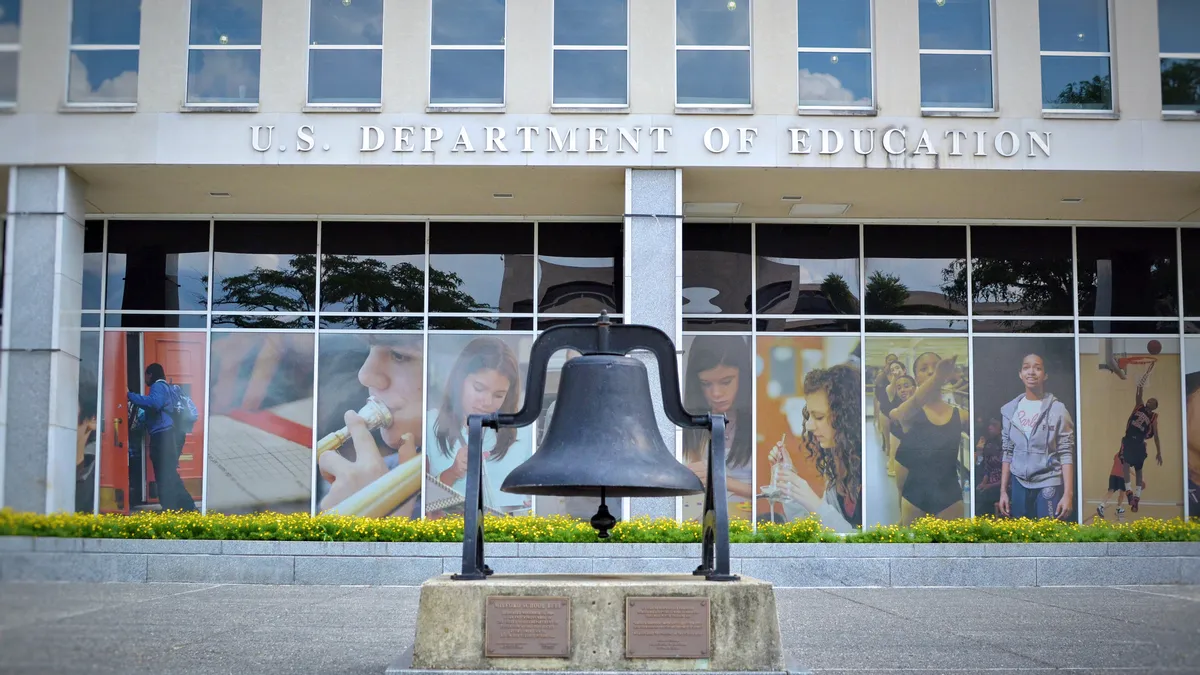Dive Brief:
- A fall survey of state deputy education superintendents conducted by The George Washington University's Center on Education Policy found that 44 of 45 respondents report a lack of funding, staffing or expertise to fulfill at least one of the Every Student Succeeds Act's (ESSA) key requirements, according to a press release.
- Additionally, the survey found a desire for clearer directions on implementation from the U.S. Department of Education following the Trump Administration's decision to abandon regulations and guidance previously developed for the law, with 25 respondents saying current written guidance is lacking in detail.
- Also detailed in the report, titled "Planning for Progress: States Reflect on Year One Implementation of ESSA": 29 respondents felt the law was successful in shifting control of educational decisions to state and local agencies, with 21 seeing the shift as positive and 23 state leaders reporting the law had increased their agency's workload.
Dive Insight:
ESSA, which was recognized by Education Dive as the 2017 Policy of the Year due to its ongoing impact on the day-to-day operations of schools and districts, largely went into effect this school year, though the U.S. Department of Education's approval process for states' plans is still ongoing.
The survey also found that state leaders don't expect major problems from expanded requirements around the public reporting of state "report card" data, that 35 respondents plan changes to required assessments in math, English and science assessments in the next three years, and that many states expect proposed Title II-A funding elimination to present challenges. On the assessment front, our examination of 14 state plans found most sticking primarily to math and English language arts as the primary measures of student achievement, with just eight of the 14 including science exams in accountability plans.
Among the aforementioned Obama-era regulations dropped when President Trump took office were a requirement that schools test at least 95% of students, a push to weigh metrics like test scores and graduation rates more heavily than others in determining if a school is "underperforming," and rules calling for more detailed monitoring of English language learners' achievement.
While the CEP survey shows that state education leaders already have their hands full with challenges around ESSA implementation and funding, those could potentially multiply due to concerns under current GOP tax proposals in the House and Senate.














